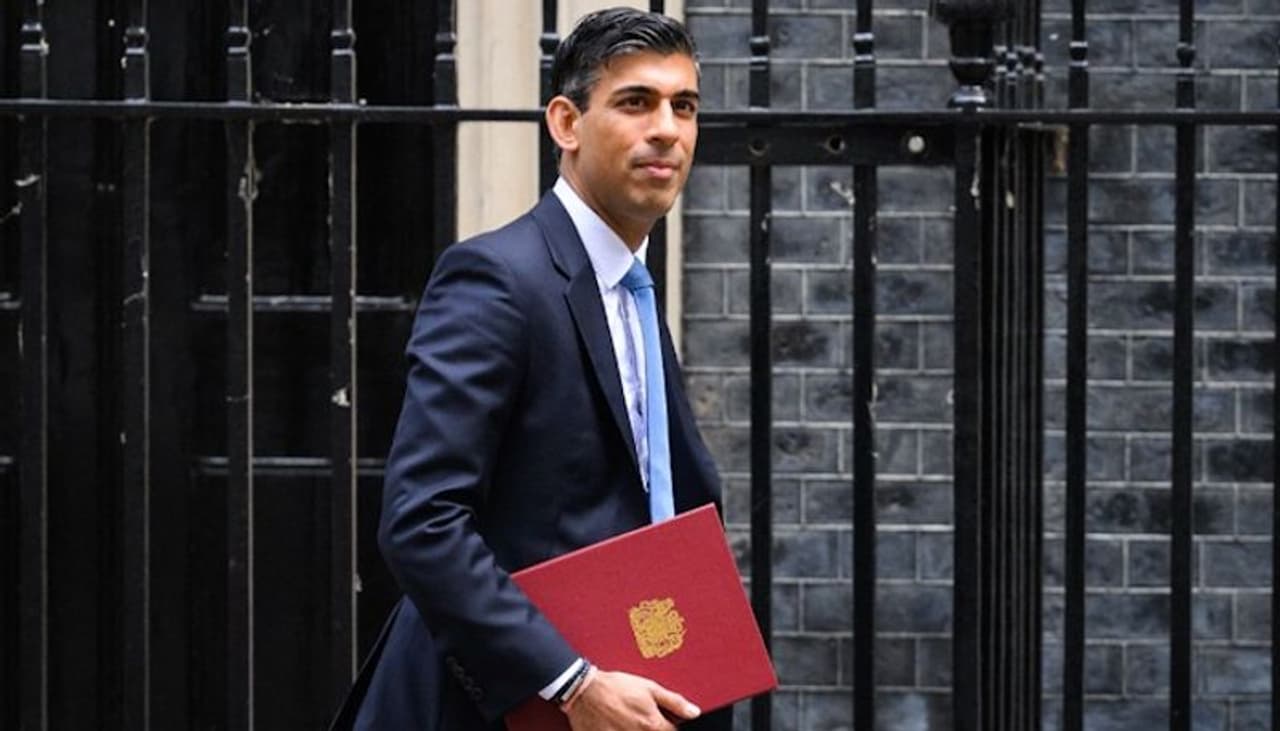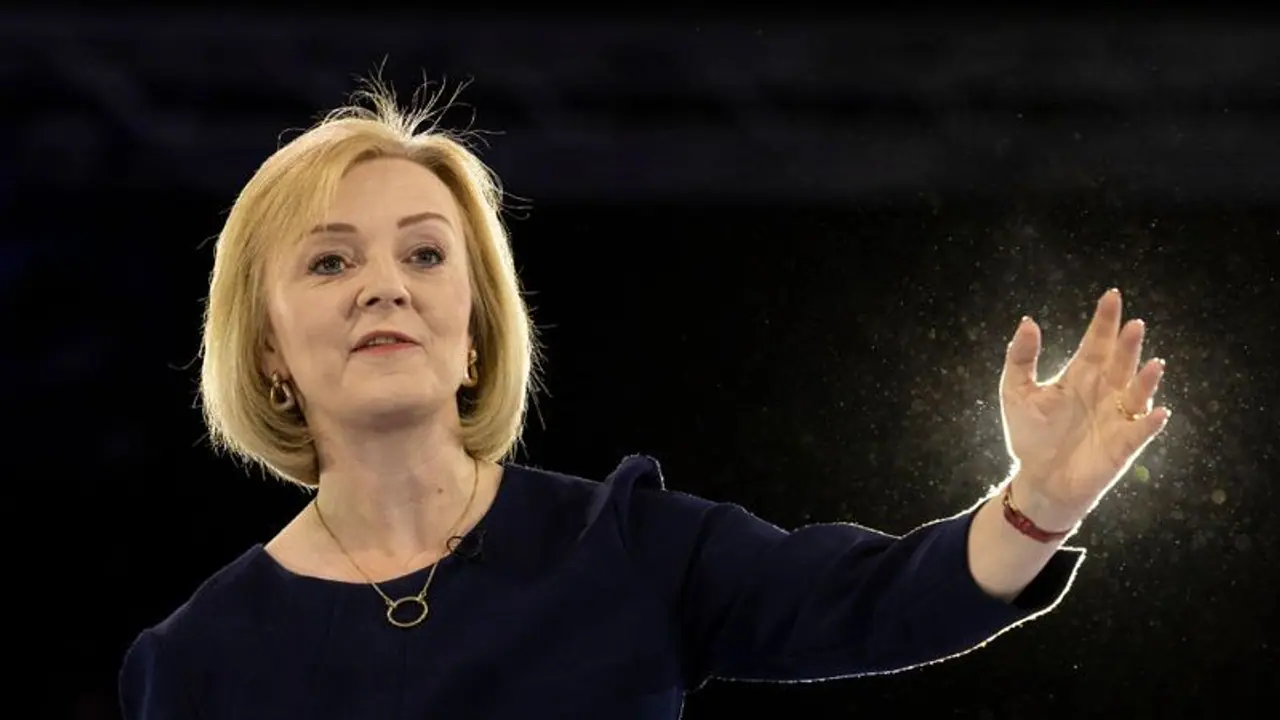On the India front, Britain's new Prime Minister, Liz Truss, is expected to pursue the ongoing free trade agreement (FTA) negotiations towards a year-end deadline.
Britain got its third female Prime Minister on Tuesday as Liz Truss, who in her innings as foreign and trade minister batted for stronger bilateral ties with India, took charge at 10 Downing Street after defeating Indian-origin ex-chancellor Rishi Sunak in the Conservative Party leadership race.

Due to the nation's spiralling cost of living crisis, which rivals any of the problems experienced by her female predecessors in office, Margaret Thatcher and Theresa May, the 47-year-old senior Cabinet minister is faced with one of the toughest in-trays in the top post. She also has to deal with a divided party that awarded her a narrower victory margin (57 to 43%) than most recently elected Tory party leaders.
Also read: Netizens celebrate Liz Truss' win with Rishi Sunak memes; Check out
On the other hand, the former international trade secretary who approved the Boris Johnson-led government's India-UK Enhanced Trade Partnership (ETP) in May of last year is anticipated to push the current free trade agreement (FTA) discussions toward a year-end deadline. Truss has described India as a "big, major opportunity" and believes the UK and India are "in a sweet spot of the trade dynamics that are building up."
"We are looking at a comprehensive trade agreement that covers everything, from financial services to legal services to digital and data, as well as goods and agriculture. We think there is strong possibility for us to get an early agreement, where we lower tariffs on both sides and start to see more goods flowing between our two countries," she said soon after signing the ETP.
Truss passed the reins at the Department for International Trade (DIT) to Anne Marie-Trevelyan after being appointed Foreign Secretary. It is anticipated that she will remain International Trade Secretary and move the UK-India FTA negotiations forward.
More recently on the campaign trail, Truss reaffirmed that she remains "very, very committed" to strengthening bilateral ties at a hustings event of the party's Conservative Friends of India (CFIN) diaspora group. She also committed herself to get the India-UK FTA done, preferably by Diwali, the deadline set by predecessor Boris Johnson, but "definitely by the end of the year."
Also read: Who is Liz Truss, the new Prime Minister of Britain
She has repeatedly flagged enhanced defence and security cooperation with the Indo-Pacific region in order to meet her "network of liberty" goals as a counter-balance to the aggression of Russia and China and also promised to ensure the UK's visa regime continues to attract the "best and brightest" from India.
She has led the UK's reaction to the conflict between Russia and Ukraine as foreign secretary, enforcing strict sanctions and taking action against Russian assets in the UK.
Given the spiralling energy costs that have caused a cost-of-living crisis in the UK partly due to the ongoing conflict in Europe, this problem has been called one of the toughest in-trays that any new British Prime Minister has faced.
"Within one week I will make sure there is an announcement on how we are going to deal with the issue of energy bills, and of long-term supply, to put this country on the right footing for winter," she said in a recent interview.

Analysts anticipate her to accept parts of opponent Rishi Sunak's plans of assistance targeted at the most disadvantaged households. In the following days, some severe measures are expected. However, it would be impossible for the two finalists to cooperate in a new Cabinet because of her promise to roll back the outgoing Chancellor's tax increase.
Truss stuck to her low tax commitment throughout the campaign, which clearly paid off with the historically low tax-favouring Conservative Party base. Sunak, on the other hand, insisted that tax cuts are not the solution to control the nation's surging inflation.
While Sunak, born in the UK, conducted a polished campaign highlighting his immigrant background and Indian ancestry, Truss acknowledged that she wasn't the most polished candidate but had a clear idea of how to "get the job done."
Ironically, both candidates harked back to Tory grandee Margaret Thatcher as their inspiration.
Also read: Liz Truss becomes UK PM; Know her net worth, car collection & more
Truss, though, was someone who had voted for the UK to stay in the European Union, whilst Sunak adhered solidly to one extreme of the party wing as a Brexiteer (EU).
She was frequently questioned about her membership in and support of the Liberal Democrats while a young Oxford University student.
The South West Norfolk MP eventually managed to win over the party's core of supporters, though she had been widely regarded as the favourite ever before her party's members selected her as a finalist.
Born in Oxford to a maths professor father and nurse and teacher mother, Truss grew up and lived in different parts of the UK, including Paisley in Scotland and Leeds, Kidderminster and London in England.
Truss is married to accountant Hugh O'Leary with two teenage daughters. She now has the tough task of governing the different parts of the United Kingdom and reigning in divisions within her own party.
Also read: 5 key challenges Liz Truss faces as UK's new Prime Minister
(With inputs from PTI)
